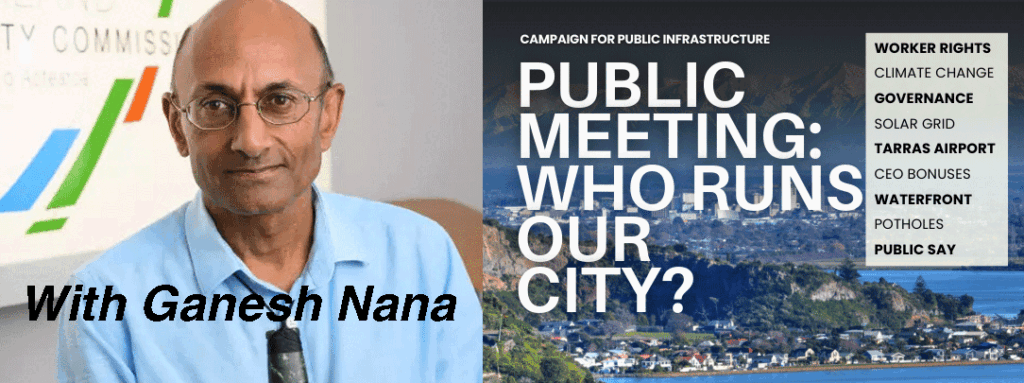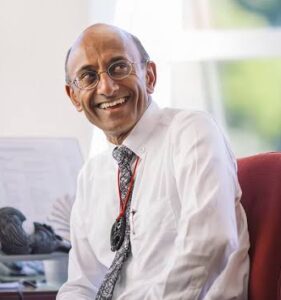Ownership, management, and control of public, community, and private assets:
what, why, who, how?

TUESDAY SEPTEMBER 3, 7 pm
WEA 59 Gloucester St, Christchurch CBD
Facebook Event
In December 2023, the Christchurch City Council voted, by the narrowest of margins (8/7), not to proceed with a process that would have led to the sale of the Council’s publicly-owned assets. This was a victory for the people of Christchurch.
Now, Keep Our Assets (KOA), in partnership with Campaign for Public Infrastructure and other groups, wants to examine positive suggestions for how to best keep, manage and grow our assets. We’ve invited Ganesh Nana, a progressive economist and, until very recently, head of the Productivity Commission (which the Government abolished in early 2024) to speak to us, with his thoughts on the subject.
Following Ganesh’s talk, attendees will have a chance to ask questions and to discuss what we’ve heard and to make our suggestions for what we want for our assets and our city.
About Ganesh Nana

Ganesh is a first-generation New Zealander of Indian ethnicity, raised in Whakatiki Upper Hutt. Ganesh acknowledges Māori as Tangata Whenua of Aotearoa. Ganesh lives with his partner in Te Whanganui a Tara Wellington.
An economist by trade, Ganesh has accumulated more than 40 years of experience and knowledge during a professional career that has ranged from academia (Victoria University of Wellington), to consulting and public service in NZ and England (Oxford Economics, UK Parliament, Business and Economic Research Limited (BERL), Productivity Commission Te Kōmihana Whai Hua o Aotearoa.
Despite his passion for numbers, Ganesh believes economics is distinct from money and finance, and prefers a framing centred on whakapapa, whenua, whai hua – people, place, and value. Economics is about nurturing, protecting, maintaining, and improving the resources (whakapapa, whenua, people, and place) that we all individually and collectively rely on to produce and deliver the goods and services we value and are valued. In doing so, we enable people to contribute through jobs providing incomes, opportunities, and futures – whether through the market or the non-market economy.
Leave a Reply